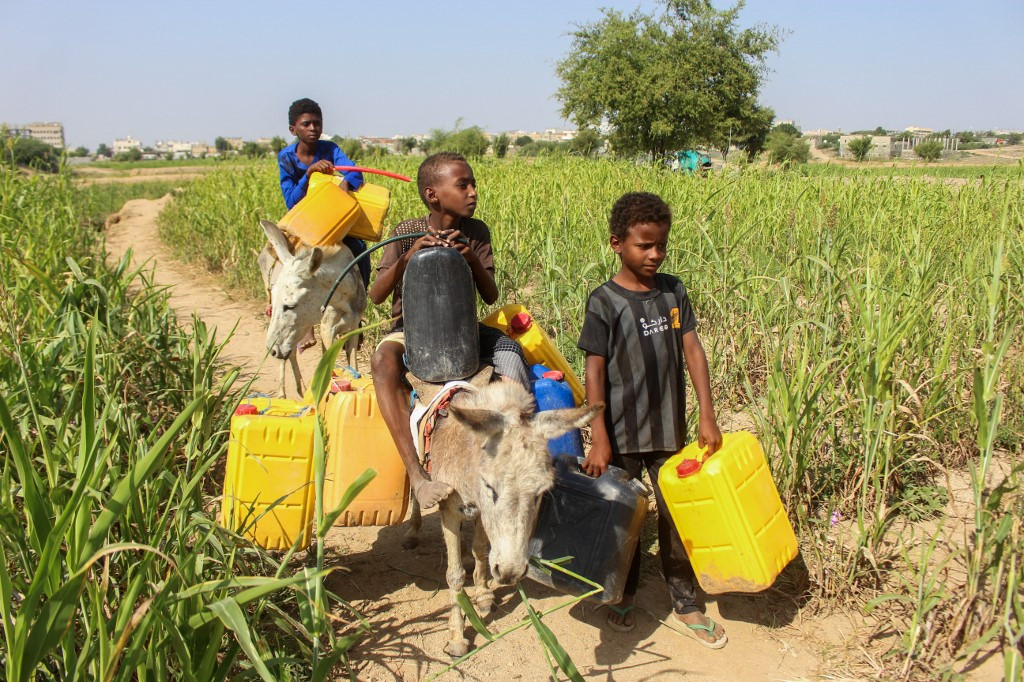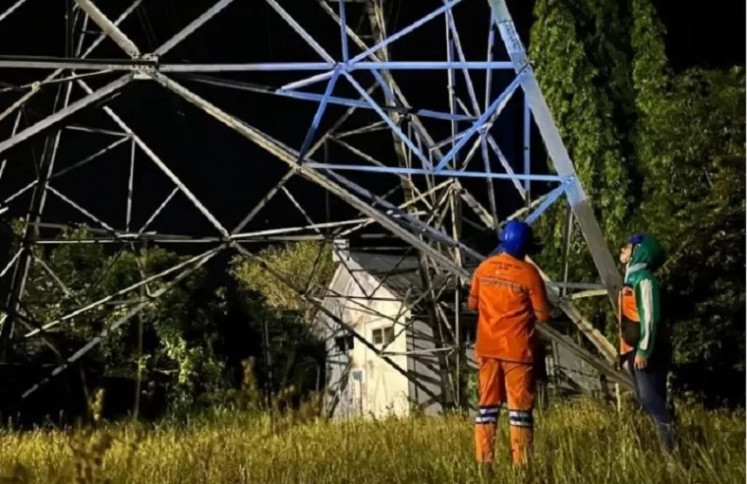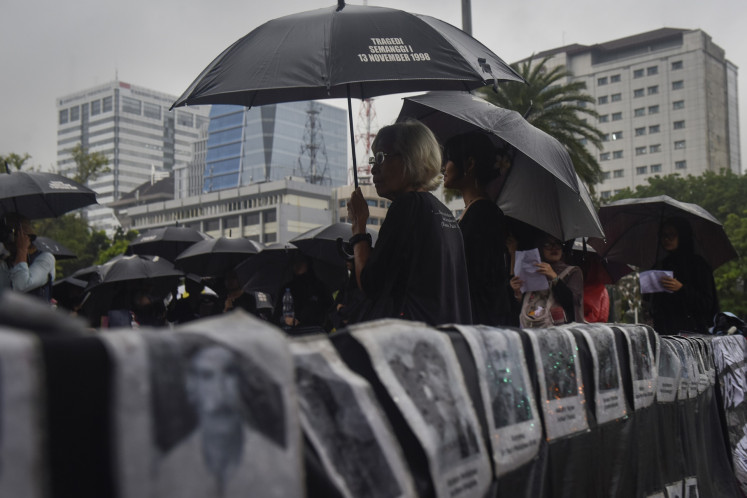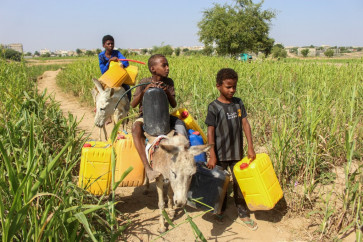Popular Reads
Top Results
Can't find what you're looking for?
View all search resultsPopular Reads
Top Results
Can't find what you're looking for?
View all search resultsThe world needs a new economics of water
The world faces an unprecedented water crisis that demands a paradigm shift in how we value and govern our most precious resource.
Change text size
Gift Premium Articles
to Anyone
 Children carrying containers arrive to refill them with water from a distribution point at a camp for the internally displaced in Yemen's northern Abs district of the Hajjah governorate on Jan. 9, 2025, as the humanitarian crisis in the country continues following the onset of the civil war in 2014. (AFP/Essa Ahmed)
Children carrying containers arrive to refill them with water from a distribution point at a camp for the internally displaced in Yemen's northern Abs district of the Hajjah governorate on Jan. 9, 2025, as the humanitarian crisis in the country continues following the onset of the civil war in 2014. (AFP/Essa Ahmed)
A
s African leaders gather in Cape Town, South Africa, for the African Water Investment Summit, there can be no equivocation: The world faces an unprecedented water crisis that demands a paradigm shift in how we value and govern our most precious resource.
The scale of the challenge is staggering. Over half the world’s food production now comes from areas experiencing declining freshwater supplies. Two-thirds of the global population faces water scarcity at least one month per year. More than 1,000 children under five die every day, on average, from water-related diseases. And if current trends continue, high-income countries could see their GDP shrink by 8 percent by 2050, while lower-income countries (many in Africa) face losses of 10-15 percent.
Yet this crisis also presents an extraordinary opportunity. As South Africa assumes the Group of 20 (G20) presidency (for which I have been appointed special adviser to President Cyril Ramaphosa), it can champion a new economics of water that treats the hydrological cycle as a global common good, rather than as the source of a commodity to be hoarded or traded.
The economic case for action is compelling. The International High-Level Panel on Water Investments for Africa shows that every US$1 invested in climate-resilient water and sanitation delivers a return of $7. With Africa requiring an additional $30 billion annually to meet the Sustainable Development Goal (SDG) on water security and sustainable sanitation, the financing gap is significant; but it is surmountable with the right strategy. The Global Commission on the Economics of Water (which I co-chaired with Ngozi Okonjo-Iweala, the director-general of the World Trade Organization, Johan Rockström, the director of the Potsdam Institute for Climate Impact Research and Singaporean President Tharman Shanmugaratnam) recently called for such a strategy.
Treating water as a global common good and adopting mission-oriented approaches to transform the crisis into an opportunity requires that we recognize three critical facts. First, water connects us all, not just through visible rivers and lakes, but through atmospheric moisture flows that travel across continents. Second, the water crisis is inseparable from climate change and biodiversity loss, each of which accelerates the others in a vicious cycle. And, third, water runs through every SDG, from food security and health to economic growth.
Yet too often, water investments follow the failed playbook of climate and development finance. There is a tendency to derisk private capital without ensuring public returns; to fund projects without strategic direction; and to treat water as a technical problem, rather than a systemic challenge. Such approaches risk creating water infrastructure that serves investors more than communities, exacerbates existing inequalities and fails to address the interconnected nature of the water, climate and biodiversity crises.
This interconnectedness demands a new economic framework that aims to shape markets proactively rather than simply fixing failures after the fact. We need to move from short-term cost-benefit thinking to long-term value creation, and that calls for mission-oriented investments that shape markets for the common good.


















